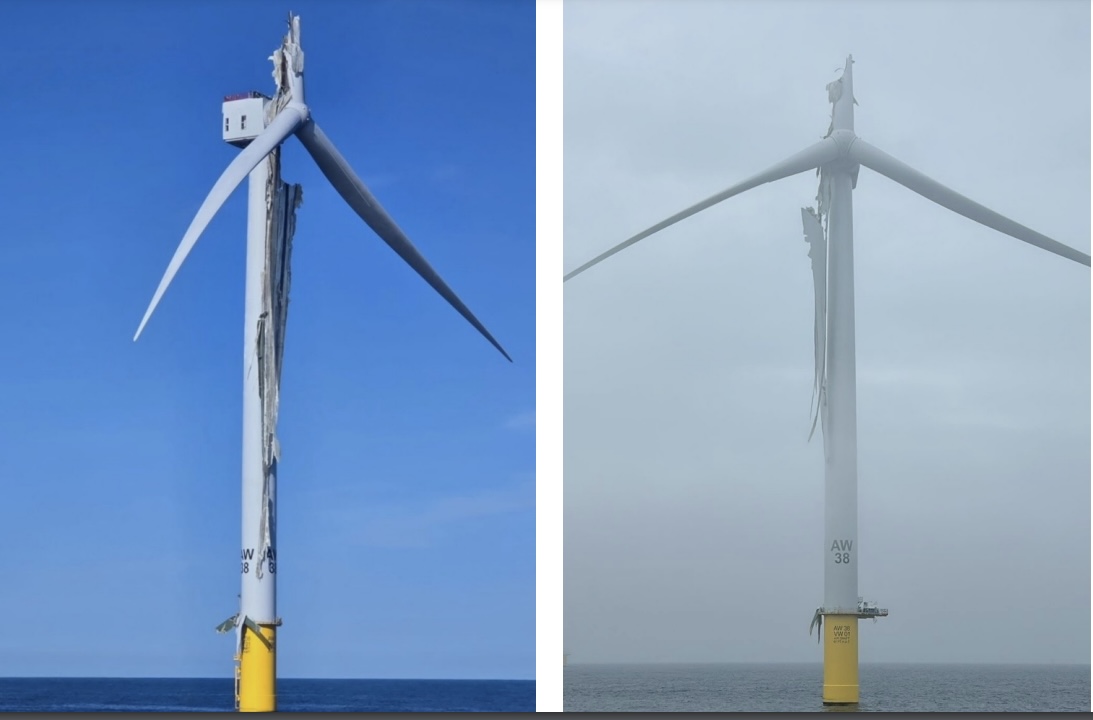
Vineyard Wind crisis: Fishermen blast feds for saying they don’t care about whales
Fishermen are blasting the feds for suggesting they don’t care about the ocean ecosystem and have no interest in the protection of the endangered North Atlantic right whales.
The claim came during a Thursday hearing in Boston federal appeals court as two fishing groups look to toss Vineyard Wind’s underlying permit, arguing regulators failed to analyze how the project would impact the environment and fishermen.
“The alliance, as a trade association representing the fishing industry, does not have any interest in protecting right whales,” said attorney Thekla Hansen-Young, representing the Department of the Interior, the National Marine Fisheries Service, among other federal agencies, in the dispute.
Hansen-Young was referring to the Responsible Offshore Development Alliance, one of the groups fighting the feds and Vineyard Wind. Seafreeze Shoreside Inc. is the other.
RODA, a Washington, D.C.-based coalition of fishing companies and industry associations, is looking to overturn a lower court judge’s dismissal from last fall, arguing regulators skipped over “safety, engineering, or structural integrity reviews of Vineyard Wind’s Haliade-X turbines” before approval.
Annie Hawkins, the coalition’s executive director, shot back at Hansen-Young’s “repugnant” assertions after the hearing in which judges took no action.
“We take extreme offense to the government’s claim that our fishermen members have even less environmental interest in our oceans than recreational hobbyists because fishermen just want to ‘kill’ fish,” Hawkins said. “This statement erases generations of history, tradition, and knowledge.”
“Fishermen are faithful stewards of the ocean because their relationship with the sea forms the very fabric of coastal culture, supports their businesses, jobs, and communities,” she added. “The government’s repugnant position reveals a hostility to our iconic industry that is sadly common in its dealings with us.”
Hawkins’ alliance challenged the $4 billion Vineyard Wind project in January 2022 before the case waded through the courts, and U.S. District Judge Inditra Talwani dismissed the suit last October.
Responsible Offshore Development Alliance and Seafreeze Shoreside claimed the 62-turbine, 806-megawatt wind farm would harm fishermen and the North Atlantic right whale.
Talwani said the alliance “did not have the statutory standing because it asserted only economic injuries” concerning National Environmental Policy Act claims.
The Biden administration decided to restart permitting for Vineyard Wind in February 2021, just a month after the president took office. The Trump administration delayed the process due to concerns turbines would negatively impact commercial fishing.
RODA’s attorney Roger J. Marzulla argued on Thursday that the feds should not have allowed a so-called record of decision while a biological opinion on Vineyard Wind’s impacts was in renegotiations.
The National Marine Fisheries Service determined that Vineyard Wind was“not likely to jeopardize the continued existence” of right whales and other endangered species – an opinion they maintained in 2020 and 2021.
“Every year there’s new population information about right whales that comes out,” Hansen-Young said. “In some ways, the agency would never be able to issue a permit if it always had to wait for the newest information to come out. This is an example of good governance.”
While this month’s turbine blade failure off of Nantucket has roiled the summer island community, attorneys did not include it as a sticking argument. The “disaster” is on the mind of fishermen, nonetheless.
“The recent blade disaster has scattered debris over a huge swath of historic fishing grounds, creating serious hazards for mariners and marine life,” Jerry Leeman, CEO of the New England Fishermen Stewardship’s Association said in a statement.
“As RODA’s lawsuit explains, there is no evidence Vineyard Wind’s Haliade-X turbines were ever safety tested,” he added. “Fishermen are gravely concerned that they cannot withstand the volatile marine conditions of the north Atlantic. Now New England fishermen are paying a steep price for this criminal lack of oversight.”


